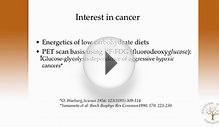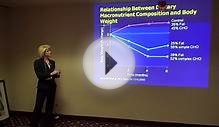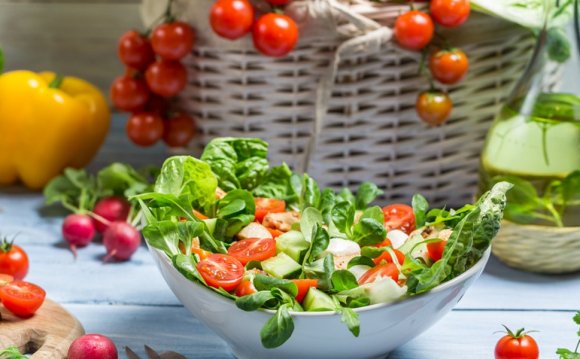
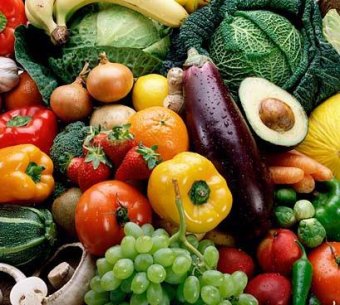 What Is the Specific Carbohydrate Diet?
What Is the Specific Carbohydrate Diet?
The Specific Carbohydrate Diet (SCD) is a group of foods which are grain-free, sugar-free, starch-free, and unprocessed. While removing many foods that are toxic and digestively harmful, the diet remains natural, extremely nourishing and representative of what our ancestors ate.
Eating SCD is a way to “re-boot” your digestion and give you an overall health boost. The diet will probably have you feeling better than ever, even if you don’t have any intestinal damage. But if you are one of the lucky few who needs a bit of digestive support this diet was created especially for you.
Where Did SCD Come From?
The principles of SCD were laid down by Dr. Sidney Valentine Haas as he treated Celiacs and other IBD patients in the 1950s. One of his patients was Elaine Gottschall’s daughter who at the time was very sick with Ulcerative Colitis. Dr. Haas helped Elaine’s daughter to achieve lasting remission through diet and the use of fermented foods.
Elaine Gottschall then dedicated her life to researching the diet – gut connection. She coined the name the Specific Carbohydrate Diet and released the science and ground rules in her life’s work Breaking the Vicious Cycle, Intestinal Health Through Diet.
Breaking the Vicious Cycle is the reason we are here today and. We are very grateful for all the hard work that Elaine put into it and we think everyone should own a copy or two.
What Science Is Behind the Specific Carbohydrate Diet?
The diet’s guidelines are based on the fact that not everyone’s digestive tract has evolved to optimally digest complex carbohydrates and other man-made food products like sugar. The main principle of the diet is that carbohydrates are classified by their chemical structure; they are monosaccharide, disaccharide, or polysaccharide. On the diet, only monosaccharide carbohydrates are allowed to be eaten as all others require extra digestion steps to break the chemical bonds down to monosaccharide carbohydrates.
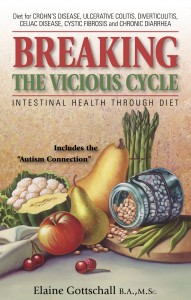 Any food that is not properly digested causes bacterial and yeast overgrowth when undigested carbohydrates are fed on by bacteria and yeast in the intestinal tract. This starts a chain reaction of excess toxins and acids which cause irritation of the small intestine cells damaging them and causing food absorption issues which only helps to continue the cycle.
Any food that is not properly digested causes bacterial and yeast overgrowth when undigested carbohydrates are fed on by bacteria and yeast in the intestinal tract. This starts a chain reaction of excess toxins and acids which cause irritation of the small intestine cells damaging them and causing food absorption issues which only helps to continue the cycle.
The diet is an all natural way to break this cycle of bacteria and yeast overgrowth by eliminating the food sources they feed on. By working to restore gut flora to normal levels, the intestinal tract is allowed to start repairing any damage by itself.
How Does the Specific Carbohydrate Diet Work?
By eliminating complex carbohydrates, lactose, sucrose and other man-made ingredients from the digestive process, the body is finally allowed to start healing. As gut flora levels start to stabilize, the reduction of irritants from undigested foods, toxins and other man-made ingredients allows inflammation levels to retreat.
This is accomplished by beginning the diet with extremely easy to digest, natural foods. This “intro diet” starts the healing process and then more complex foods are added back to the diet very slowly. By carefully adding foods back to the diet, the Specific Carbohydrate Diet is individually tailored to each person’s state of injury and digestion abilities.
Eat This:
Allowed Meats: Eggs, Chicken, Turkey, Beef, Fish, Pork, Wild Game, Bacon, Lamb
Allowed Vegetables: Fresh or frozen of most commonly eaten vegetables are acceptable (asparagus, beets, broccoli, brussel sprouts, cabbage, cauliflower, carrots, celery, cucumbers, eggplant, garlic, kale, lettuce, mushrooms, onions, peas, peppers, pumpkin, spinach, squash, string beans, tomatoes and watercress) Click here for others
Allowed Fruits: Commonly found Fresh or Frozen or dried with nothing added are acceptable (apples, avocados, bananas (ripe with black spots), berries of all kinds, coconut, dates, grapefruit, grapes, kiwi fruit, kumquats, lemons, limes, mangoes, melons, nectarines, oranges, papayas, peaches, pears, pineapples, prunes, raisins, rhubarb, tangerines) Click here for others
Dairy: SCD Yogurt, natural 30-day aged Cow and Goat cheeses (not Kraft – see below), Butter, Ghee, and Dry Curd Cottage Cheese (DCCC).
INTERESTING VIDEO
